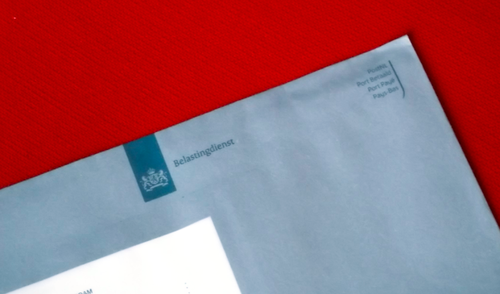Partner content
Key changes to Dutch taxes you need to know about in 2018


The new Dutch government is planning to make quite a few changes to the current tax system. While most of them won’t come into effect until 2019, it is time to start planning for their impact now.
The centre-right Dutch coalition government sees giving people more cash to spend as key to ensuring future economic growth. Part of the strategy involves simplifying the income tax system and raising taxes from other sources.
1. Income tax
The biggest shake-up in the tax proposals is cutting the number of tax bands to two in 2019 but there will be a slight change in the tax rates in 2018.
At the moment, there are officially four income tax bands but the second and third band are the same. Currently taxpayers are charged 36.55% on earnings up to €20,000, 40.8% on earnings up to €67,000 and 52% above that. This year the mid tax band will go up marginally to 40.85% while the top band, for income over €68,500 will be 51.95%.
The new system in 2019 will involve an income tax rate of 36% on earnings up to €68,000 and 49.5% for all income above that.
What will this mean to you?
In 2018 the tax cuts will have a minimal effect. In 2019, however, people on middle or high incomes will pay less income tax. People with a low income will pay slightly more.
What can you do to prepare for the change?
There is not much you can do. Your employer will withhold the payroll tax from your salary. Your net income will probably be a little higher. If you are self employed, consult a tax advisor.
2. Mortgage tax relief (hypotheekrenteaftrek)
The interest you pay on your mortgage is deductible from your taxable income. This mortgage tax relief will be a little lower in 2018. The maximum percentage of interest that can be deducted will be 49.5% in 2018 (in 2017 it is 50%). The government is planning on reducing mortgage tax relief more rapidly from 2020.
What will this mean to you?
You will be able to deduct less of the interest you pay on your mortgage from tax so the cost of owning a house will be a little higher.
3. Home owners tax (eigenwoningforfait)
Home owners pay an extra tax based on the fact that they own a property – which is considered an asset that financially benefits them. This tax is based on the official property valuation (WOZ) which local authorities use to calculate local taxes. Average WOZ values will be up 5% to 7% next year, which means the amount you pay in home owners’ tax will rise too.
At the moment people who have paid off their mortgages don’t have to pay the home owners tax but the government is to start phasing this in from 2019.
What will this mean to you?
The value of your house will probably increase. As a result, you will have to pay more home owners tax.

4. Asset tax
You have to pay tax on the income you are assumed to get from your savings and investments (the box 3 income).
There is a tax-free capital threshold. This amount is increasing from € 25,000 in 2017 to € 30,000 in 2018.
What does this mean to you?
If you have savings and other box 3 assets valued at less than €30,000, you won’t have to pay any asset tax. If you have more, the rates of tax are changing:
- € 30,000 – € 70,800 = 0.6% asset tax
- € 70,800 – € 978,000 = 1.3% asset tax
- Above € 978,000 = 1.61% asset tax
5. 30% ruling
The 30% ruling applies to you if you were recruited outside of the Netherlands or seconded from a country other than the Netherlands to work here. The following conditions apply as of 1 January 2012:
- You are recruited outside a 150-km zone of the Dutch border.
- You have a taxable income of minimal € 37,296 before applying the 30% benefit.
The maximum validity of the 30% ruling is currently eight years. There will be no changes in regards to the 30% ruling in 2018 but the new cabinet is planning to reduce it to five years in the future.
6. Other changes
Other changes are on the way which may well eat up many of the benefits the income tax cut will bring. The lower rate of value-added tax (btw) is going up from 6% to 9% and this will impact on grocery bills and tickets for the theatre or cinema.
In addition, energy bill taxes are also going up. According to calculations by home owners lobby group Vereniging Eigen Huis, the increase could be as much as €200 per household from 2019, when most of the changes come into effect. In 2018, the government says, the average rise will be €45.
All the more reason, then, to make sure that you make the most of all the tax breaks open to you. If you’d like to speak to an expert, contact a tax advisor at Blue Umbrella, who will be more than happy to help you with all your Dutch tax matters.
Thank you for donating to DutchNews.nl.
We could not provide the Dutch News service, and keep it free of charge, without the generous support of our readers. Your donations allow us to report on issues you tell us matter, and provide you with a summary of the most important Dutch news each day.
Make a donation